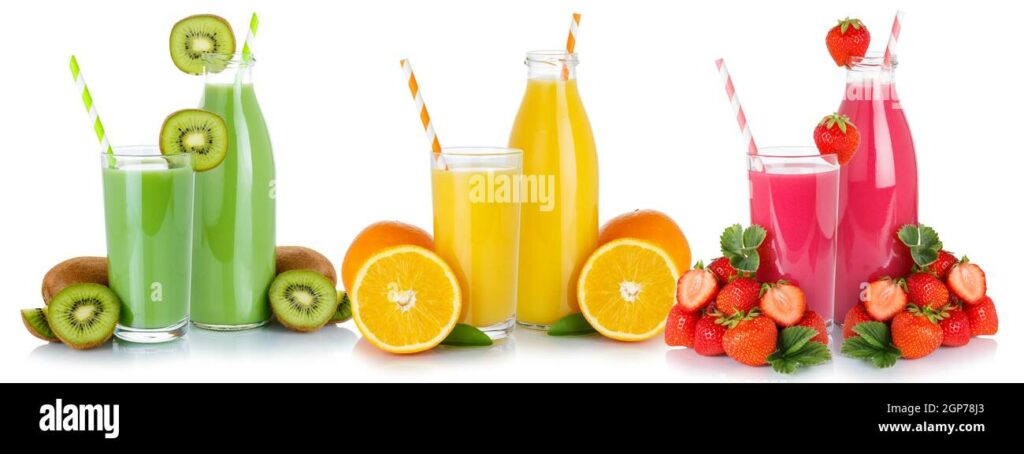The debate over whether fruit juice is as unhealthy as sugary soda has gained considerable attention in recent years, sparking discussions among health professionals, researchers, and consumers alike. Both fruit juice and sugary soda are beverages commonly associated with high sugar content, but they differ in nutritional composition, processing methods, and potential health effects. In this comprehensive guide, we will explore various aspects of fruit juice and sugary soda to understand their similarities, differences, and overall impact on health.
Understanding Fruit Juice
Fruit juice is made by extracting the liquid from fruits, typically through squeezing or pressing, and may undergo pasteurization or filtration for preservation. It is often perceived as a healthier alternative to sugary soda due to its natural sweetness and the presence of essential nutrients such as vitamins, minerals, and antioxidants derived from fruits. However, it’s crucial to recognize that fruit juice can be concentrated in sugars, particularly fructose, which is the naturally occurring sugar found in fruit. Even 100% fruit juice without added sugars can contribute to high sugar intake due to the removal of fiber during the juicing process.
Examining Sugary Soda
Sugary soda, on the other hand, is a highly processed beverage made from carbonated water, high-fructose corn syrup, artificial flavors, and additives. Unlike fruit juice, sugary soda provides little to no nutritional value aside from empty calories from added sugars. Regular consumption of sugary soda has been linked to numerous health issues, including obesity, type 2 diabetes, heart disease, and dental cavities. The high sugar content and lack of nutritional benefits make sugary soda a beverage of concern in terms of public health.
Comparing Sugar Content
One of the primary similarities between fruit juice and sugary soda is their high sugar content, which can contribute to excessive calorie intake, weight gain, and metabolic disorders when consumed in excess. While the sugars in fruit juice are naturally occurring, they can still have adverse effects on health, including blood sugar spikes and insulin resistance. Sugary soda, on the other hand, contains added sugars, often in the form of high-fructose corn syrup, which can be particularly harmful due to its high fructose content.
Fiber Content
One significant difference between fruit juice and whole fruits is fiber content. Whole fruits contain dietary fiber, which plays a crucial role in digestion, satiety, and blood sugar regulation. When fruits are juiced, the fiber is removed, leaving behind a concentrated source of sugars that can lead to rapid spikes in blood sugar levels. The absence of fiber in fruit juice can contribute to overconsumption of calories and increased risk of weight gain, whereas whole fruits provide the beneficial effects of fiber along with essential nutrients.
Impact on Health
Both fruit juice and sugary soda can have detrimental effects on health when consumed in excess. Excessive sugar intake from fruit juice and sugary soda has been associated with an increased risk of obesity, type 2 diabetes, cardiovascular disease, and other metabolic disorders. The lack of fiber in fruit juice can exacerbate these issues by promoting rapid spikes in blood sugar levels and contributing to insulin resistance. While fruit juice may offer some nutritional benefits, its high sugar content should be taken into consideration when making dietary choices.
Making Informed Beverage Choices
When it comes to choosing between fruit juice and sugary soda, moderation and mindfulness are essential. Limiting intake of both beverages and opting for smaller serving sizes can help reduce sugar consumption and prevent excessive calorie intake. Diluting fruit juice with water or seltzer can lower its sugar content while still allowing you to enjoy its flavor. Reading nutrition labels carefully and choosing beverages with minimal added sugars or artificial ingredients is also important for making informed choices.
Conclusion
In conclusion, while fruit juice and sugary soda share similarities in terms of high sugar content, they differ in nutritional composition, processing methods, and potential health effects. While fruit juice may offer some nutritional benefits derived from fruits, its high sugar content and lack of fiber can contribute to health issues when consumed in excess. Sugary soda, on the other hand, provides little to no nutritional value aside from empty calories from added sugars. Both beverages should be consumed in moderation as part of a balanced diet, with an emphasis on whole, minimally processed foods and beverages. By making informed choices and prioritizing nutrient-dense options, you can support your overall health and well-being while enjoying the occasional indulgence in moderation.

